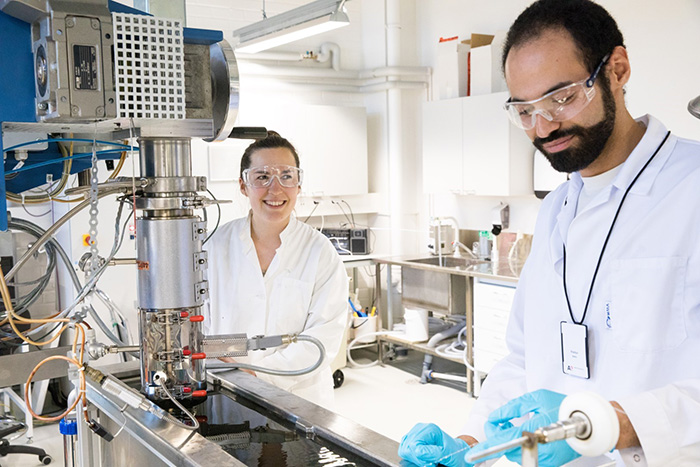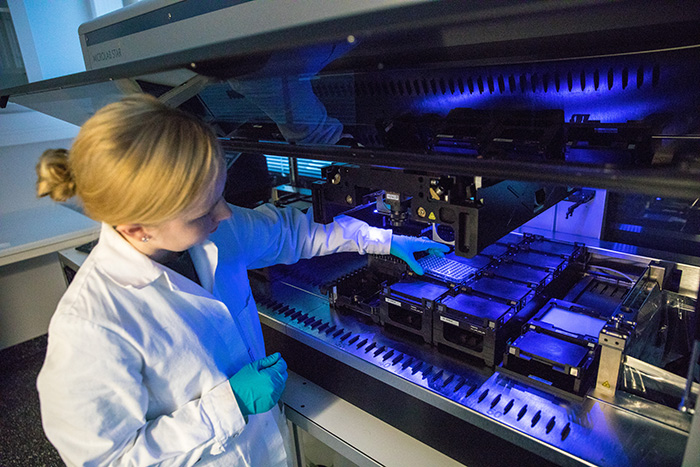Research
The research activities of Bio2 focus on products that are either derived from nature or that are produced through biotechnology. Our core competencies include synthetic biology, biochemical and biotechnical processing, the chemistry of lignocellulosic materials, pre-treatment and fractionation of biomass, downstream unit operations as well as the characterization and analysis of materials. Our research activities have resulted in new approaches to the deconstruction and re-assembly of lignocellulosics into micro-and nanostructures, filaments, composites and advanced functional materials. Through fundamental and applied research into the structure and behavior of renewable polymers, including lignocellulosics, we have been able to create novel materials with enhanced properties.
In particular, we are continually developing:
- new functionalities for forest products and composites
- sustainable materials and valorizing waste streams
- efficient pretreatment and fractionation processes for lignocellulosics from various sources to access the native biopolymers
- new routes for chemical and biochemical conversion of lignocellulsoics into high-value added products
- novel cellulosic materials including man-made cellulosic fibers
- biopolymers with new functionalities with particular emphasis on surface and colloid chemistry
Bacterial cellulose (photo: Anni Hanén)

Production of Ioncell textile fibers (photo: Mikko Raskinen)
Biotechnology plays an important role in the department. In particular, we are developing microbial cells as efficient cell factories for the production of fuels, chemicals, and recombinant proteins for materials and other applications. One important area is the design of novel enzymatic routes and catalysts for the conversion of oligo- and polysaccharides into value-added products and their characterization at the molecular level. Our expertise in biotechnology encompasses:
- synthetic biology for the engineering of cellular factories and bio-inspired materials
- fermentative production, metabolic engineering and downstream processing of biomolecules including biofuels, proteins and biopolymers
- mathematical modeling and simulation of advanced bioprocesses
- cell and tissue-based biomaterials
- characterization of biological polymers, in particular proteins and oligosaccharides using mass-spectrometry

The expertise embedded in Bio2 is of the highest importance to the forest products, chemical, textile, food and biotechnology industries and our research activities result in innovative products and solutions for material and energy needs.

